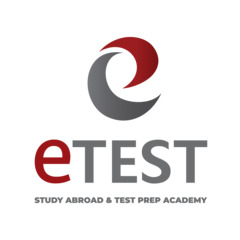Task 2: It is now possible for scientists and tourists to travel to remote natural environments, such as the South pole.
Do the advantages of this development outweigh the disadvantages?

Explorers, along with scientists, have long traveled to previously inaccessible locations in the interests of exploration and understanding our world better. Now tourists are also going on excursions there for purely personal reasons with potentially serious effects such as bringing in pollutants and disturbing local wildlife. The benefits of such activities are therefore highly contentious.
For thousands of years, mankind has sought to reach every part of this world in the interest of discovering it all and learning as much as possible. This has opened up these remote areas to human encroachment at a level never experienced before; for example, after the Southern Pacific Ocean was mapped, whalers and seal hunters were sent there in droves to bring back whale oil & seal skins for burgeoning European markets. This brought riches to many merchants and an expansion of trade networks which definitely increased the world economy. However, there were no controls on the killing, so some species were hunted to near or complete extinction, affecting the natural ecosystem greatly.
As the world economy has grown, more people have taken to traveling to remote places, even back in the early 1980’s tourists could take a commercial flight over Antarctica from New Zealand, until a plane crashed into a mountain in bad polar weather. While this is a disaster for the people killed, their families and the tourism industry, it also severely impacted a pristine environment, with debris scattered over a large area. This is not an isolated incident either as thousands of tourist boats go to unexplored areas such as Northern Alaska every year, all impacting on fragile environments, including wildlife such as Polar Bears.
Overall, the only advantage I can see is scientific research, which can bring incalculable benefits whereas the negatives are manifold, from pollution, including from accidents, to deliberate hunting of endangered species. Personally, I believe these areas should only be open to carefully vetted scientific research to ensure future generations still have this as part of their world.
(Count: 331 words)
Các cụm từ hữu ích xuất hiện trong bài:
- inaccessible (adj) : không được vào, không được đến gần
- excursion (n) : cuộc đi chơi, du ngoạn, chuyến tham quan
- pollutant (n) : chất gây ô nhiễm
- contentious (adj) : gây tranh cãi
- encroachment (n) : sự xâm phạm, sự xâm lấn
- (in) droves : với số lượng lớn
- burgeoning (adj) : phát triển một cách nhanh chóng
- near or complete extinction : sắp hoặc hoàn toàn tuyệt chủng
- pristine (adj) : ban sơ, nguyên bản, chưa bị hư hỏng
- debris (n) : mảnh vỡ, mảnh vụn
- isolated incident : sự cố bị cô lập
- fragile environment : môi trường dễ bị phá hoại
- incalculable benefits : những lợi ích không đếm xuể được
- manifold (adj) : đa dạng, nhiều hình thái khác nhau
- vet (v) : kiểm tra, hiệu định, khám bệnh
Tham khảo chi tiết chương trình tiếng Anh IELTS ở ETEST và để nhận lộ trình học IELTS cá nhân hóa phù hợp với mục tiêu và kiểm tra IELTS miễn phí tại Anh Ngữ Du Học ETEST
ANH NGỮ DU HỌC ETEST
Thông tin liên hệ:
- Hotline: 0933 80 66 99 (Quận 3) | 0937 80 66 99 (Quận 7) | 0936 17 76 99 (Đà Nẵng)
- ETEST Quận 3: Lầu 3, 215 Nam Kỳ Khởi Nghĩa, Anh Dang Building, P. Võ Thị Sáu, Q.3, TP.HCM
- ETEST Quận 7: Lầu 6, 79 - 81 - 83 Hoàng Văn Thái, Saigon Bank Building, P. Tân Phú, Q.7, TP.HCM
- ETEST Đà Nẵng: Số 9, Đường C2, Khu Đô Thị Quốc tế Đa Phước, P. Thanh Bình, Q. Hải Châu, TP. Đà Nẵng
Khám phá ngay: Thành tích ấn tượng của học viên ETEST





